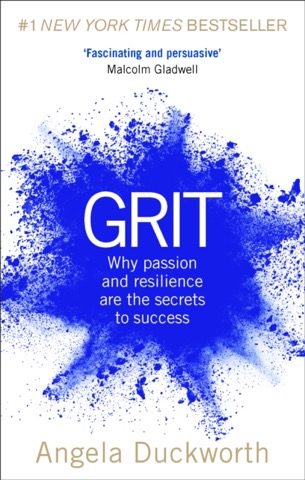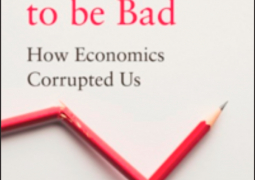
But Angela Duckworth has recently separated herself from the pack with her book Grit: The Power of Passion and Perseverance (2016), which has been hailed by coaches, journalists, and especially educators as a breakthrough work. With an impressive background as a global management consultant, inner-city teacher, and now research psychologist, Duckworth—a 2013 MacArthur Fellow and professor of psychology at the University of Pennsylvania—seems to have discovered the key ingredient to success in any endeavour. And contrary to what many think, that key ingredient is not talent.
Duckworth’s book surveys a range of challenging endeavours, from West Point’s seven-week “Beast Barracks”—“the most physically and emotionally demanding part of your four years at West Point”—to the slow process of writing and rewriting novels (she interviews John Irving), with swimming, piano, and spelling bees in between.1 Across the board, Duckworth finds that those who excel display a combination of passion and perseverance that she calls “grit.”2 “Many of us, it seems, quit what we start far too early and far too often.”3 The “gritty” stick to what they’ve begun, improving through deliberate practice, often advancing beyond others who are more innately talented in the same area.
What makes one person “grittier” than another? Duckworth identifies several components. The first is a great passion for something. “Grit is about working on something you care about so much that you’re willing to stay loyal to it.”4 When that “something you care about so much” can lay claim to and orient every aspect of your life, all the better. “Fortunate indeed are those who have a top-level goal so consequential to the world that it imbues everything they do, no matter how small or tedious, with significance.”5
Speaking of the small and tedious, the second component of perseverance is a tolerance for the mundane. Duckworth references a study of competitive swimmers titled “The Mundanity of Excellence.” “The most dazzling human achievements are, in fact, the aggregate of countless individual elements, each of which, in a sense, ordinary,” she summarizes. In other words, the races are flashy, but the hours of daily practice are not.
Third, there is a connection to like-minded community. The research is clear: “If you want to be grittier, find a gritty culture and join it.”6 Duckworth quotes a sociologist who confesses: “Speaking for myself, I don’t have that much self-discipline. But if I’m surrounded by people who are writing articles and giving lectures and working hard, I tend to fall in line.”7
Finally, and very significantly, there is a willingness to encounter failure. This may sound strange but remember that through practice we learn to do things that we are currently unable to do. For a while, you couldn’t get the flip turn, you couldn’t balance the equation, you always misspelled the word, you felt lost and exposed by the challenge. Duckworth reminds us that.
learning from mistakes is something babies and toddlers don’t mind at all. Watch a baby struggle to sit up, or a toddler learn to walk: you’ll see one error after another, failure after failure, a lot of challenge exceeding skill, a lot of concentration, a lot of feedback Very young children don’t seem tortured while they’re trying to do things they can’t yet do.8
But as we grow older, “something changes.”9 Rather than embracing failure as part of the learning process, we begin to think failure is bad and associate it with shame. The upshot of this is we begin to playthings very safe, and thus we protect ourselves by avoiding the challenges that would call forth our best effort. In this vein, Duckworth emphasizes that achievement in math has far less to do with talent than with a willingness to keep practicing the problems and concepts one struggles to understand.
Parents and educators have been particularly drawn to Grit for its gem of good news: while birth and circumstance seem to play a role in grit, each of grit’s ingredients can, indeed, be cultivated. Thus, through deliberate structure and well-chosen words, parents and educators can enhance the grit of a child. For example, there’s a world of difference between saying, “This is hard; don’t feel bad if you can’t do it,” and, “This is hard; don’t feel bad if you can’t do it yet.”10
Available at Timbooktoo Tel: 4494345/5033448



